From Oct. 6 to Oct. 20, The Paladin conducted a survey of current Furman students that asked about our community’s response to COVID-19, the efficiency and effects of virtual education, and the upcoming election. While the results do not represent a random sample, the roughly 280 responses we gathered can help us paint a picture of how students feel about university policies and national politics this semester. Let’s dive in.
First, students have been generally supportive of Furman’s overall response to the COVID crisis; 52% of our sample was moderately satisfied with the response. Professors receive especially good grades, with 77% saying that Furman professors are somewhat or definitely understanding of the hurdles students are facing this semester. This is unsurprising given that professors face many of these same hurdles:
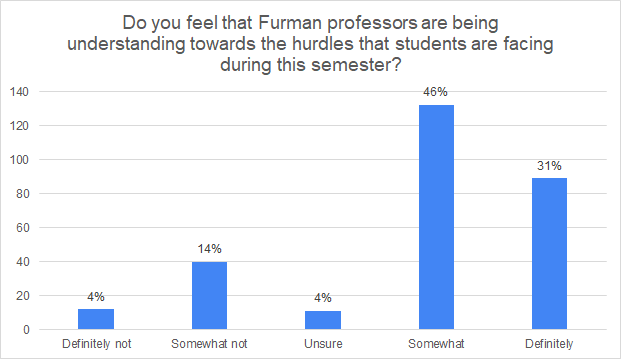
The student body did not fare quite as well in the eyes of their peers. Only 54% of respondents were slightly or extremely satisfied with the behavior of students on campus in regards to the university’s COVID-19 regulations. Male students were much more satisfied than female students. Because only 55 respondents were male, these results should be taken with a grain of salt. Nonetheless, this gender gap mirrors nationwide trends and fits the conventional wisdom that men are, on average, more prone to risky behavior:
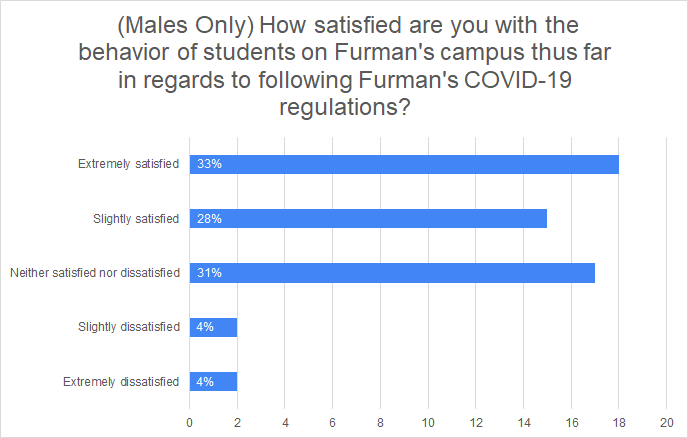
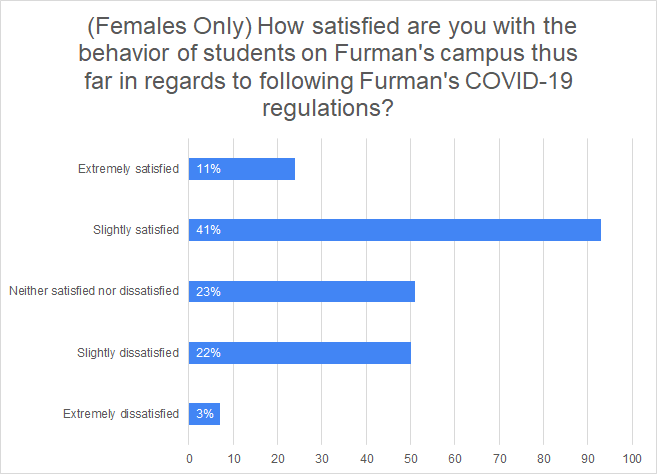
Unsurprisingly, students overwhelmingly agreed that online learning does not offer the same educational value as in-person learning. 51% said that online learning definitely did not provide the same value, and another 35% said it probably did not.
Another predictable yet concerning set of responses dealt with mental health. 61% said that COVID-19 had definitely impacted their mental health, with another 27% saying it probably had:
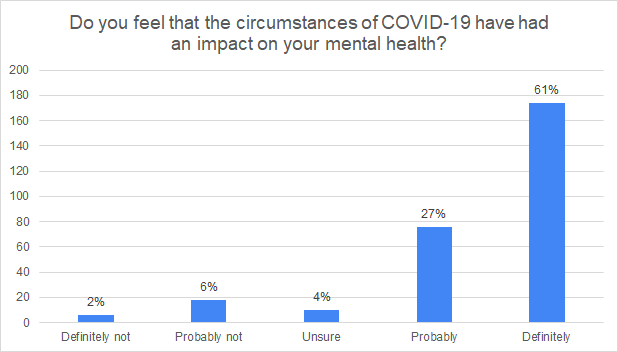
Once again, there was a gender difference on this question. 64% of females but only 49% of males said that COVID-19 had definitely had an impact on their mental health. Previous research suggests that the spring lockdown measures in the US had a disproportionate impact on women’s mental health — but neither Furman nor our surrounding community are under a lockdown order. Most of the gender disparity on this mental health question can probably be explained by the fact that women are more concerned about COVID-19 overall.
Since students are at least moderately supportive of Furman’s COVID-19 policies, there is likely not much the university can do to ease the extra anxiety and stress that the pandemic elicits for many of us. Whether it is university policy, student behavior, online learning, or mental health, these results underscore just how strange and hollow this semester has been. Even as we continue to do well in our efforts to limit the spread of COVID-19, life at Furman is not as it ought to be.
On top of concerns about the coronavirus, 94% of students in our sample said they planned on voting in tomorrow’s election—more than three times the 30% that actually voted in 2016. And while young voters are less likely to follow through on their voting plans, P2X told The Paladin that they have dealt with a much higher volume of absentee ballots this year relative to previous election years. Some students have even driven home on weekends or stood in hours-long lines to make sure their votes are counted. Enthusiasm and turnout are high across the country, and Furman is no exception.
A majority of students (57%) plan on voting for Joe Biden, though there appears to be a significant gender gap: support for Donald Trump was 12 points higher among males (remember, there were only 55 males):
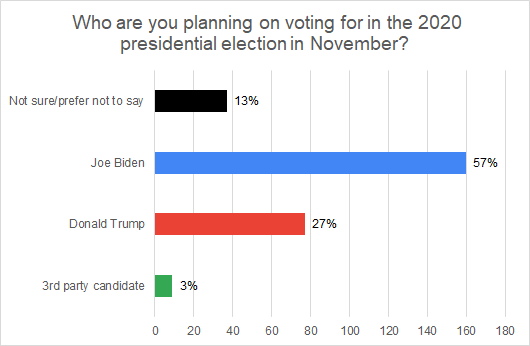
This week, The Paladin will be providing full election coverage, including articles on projected student turnout, student reactions to the results, and more. Stay tuned.
